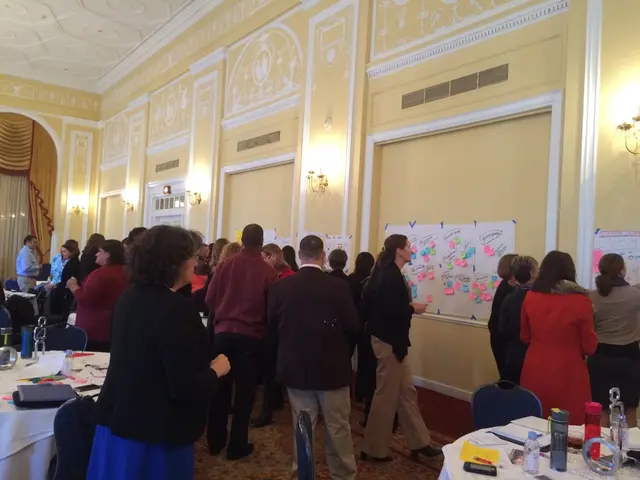Table of Contents
- Understanding ADHD: A Comprehensive Overview
- Mental Blocks in ADHD: An In-depth Analysis
- Identifying Triggers and Patterns
- Common Triggers
- Recognizing Patterns
- Strategies to Overcome Mental Blocks
- Real-life Success Stories
- Conclusion
- References
Understanding ADHD: A Comprehensive Overview
Conquering Cognitive Hurdles: Proven Techniques for ADHD Success
Worldwide, ADHD affects approximately 5% of children and 2.5% of adults, as documented by the World Health Organization (WHO). This neurodevelopmental condition is not simply a matter of daydreaming in class; it arises from differences in brain wiring that affect areas such as problem-solving. A Harvard study sheds light on how the prefrontal cortex in those with ADHD is wired differently, offering a scientific basis for the legitimacy of the condition.
Mental Blocks in ADHD: An In-depth Analysis
When faced with mental hurdles, individuals with ADHD experience a sense of being stuck, akin to moving through molasses. A 2020 study in the Journal of Attention Disorders found that procrastination and task avoidance are common obstacles for people with ADHD, exacerbated by mental blocks. Stress and fatigue often intensify these difficulties.
Identifying Triggers and Patterns
Common Triggers
- Environmental chaos: Noise can make it difficult to focus.
- Task chaos: Complex tasks can feel overwhelming.
- Emotional overload: High stress or sadness can amplify ADHD symptoms.
Recognizing Patterns
Understanding triggers is crucial in identifying patterns in one's behavior. Daily logging of activities can help pinpoint where mental blocks typically occur. Noticing trends in one's daily life offers insights into how to best manage symptoms.
Strategies to Overcome Mental Blocks
- Structured Routines Consistency can be extremely beneficial for those with ADHD. A study in the Journal of Clinical Child & Adolescent Psychology indicated that routines reduce stress and boost productivity for people with ADHD.
- Tip 1: Divide your day into blocks for work, play, or relaxation.
- Tip 2: Visual aids like calendars are valuable tools, offering a visual representation of your schedule.
- Tip 3: Set alarms to keep track of time and tasks.
- Technology and Tools
- Todoist: A useful app for planning tasks.
- Forest: A time-management app that grows virtual trees while you stay focused.
- Evernote: Great for organizing scattered thoughts and ideas.
- Mindfulness and Relaxation Techniques Mindfulness practices can foster calmness and clarity in those with ADHD.
- Meditation: 10-15 minutes of daily meditation can improve focus.
- Headspace or Calm: Mobile apps offering guided meditation sessions.
- Deep-breathing exercises: Helps regain control of one's thoughts.
- Cognitive Behavioral Therapy (CBT) CBT is an effective technique for dealing with negative thoughts and emotions, helping individuals with ADHD manage mental blocks more effectively.
- CBT strategies: Recognize and dismiss negative thoughts; tackle tasks one step at a time; reward oneself for completed tasks.
- Personalized Educational Strategies Conventional classroom settings may not cater to the needs of those with ADHD. Personalized learning plans, like Individualized Education Programs (IEPs) or 504 plans, can offer more tailored educational experiences.
- Examples of accommodations: extended test time, designated quiet workspaces, using technology for learning.
- Physical Activity and Lifestyle Changes Engaging in regular exercise can significantly improve focus and cognitive function for people with ADHD. A 2017 study in Pediatrics backs this claim.
- Common practices: regular workouts for 30 minutes daily; activities like yoga that require focus; taking short, active breaks throughout the day.
- Diet and Nutrition
- Omega-3 rich foods: found in fatty fish, such as salmon, and nuts.
- Low sugar: Limit consumption of sugary snacks and drinks that can exacerbate ADHD symptoms.
- Supplements: Consult a healthcare provider about possible supplements like zinc or iron.
- Social Support and Communication Building a strong support system can have a positive impact on the lives of those with ADHD.
- Support groups: Online communities can provide empathetic, understanding environments.
- Open communication: Share struggles and challenges with friends, family, and colleagues.
- Regular check-ins: Regular contact with knowledgeable sources such as mentors or therapists can help keep one focused and motivated.
Real-life Success Stories
Sharing the experiences of successful individuals with ADHD, such as Michael Phelps, Simone Biles, and Richard Branson, can be highly motivating. Their stories prove that with persistence and the right strategies, overcoming mental blocks is not only possible but happening.
Conclusion
While ADHD presents unique challenges, it also offers creativity and resilience. By employing a combination of these strategies, mental blocks can be effectively managed, clearing the way for increased productivity and success.
- The science behind ADHD reveals that it is not just a matter of daydreaming, but a neurodevelopmental condition with differences in brain wiring that affect areas such as problem-solving. This understanding is supported by studies like the one from Harvard, which shed light on the prefrontal cortex in those with ADHD being wired differently.
- Managing mental blocks in ADHD can be aided by adopting mindfulness and relaxation techniques, such as daily meditation, deep-breathing exercises, or using mobile apps like Headspace or Calm. These practices can foster calmness and clarity, helping individuals with ADHD effectively deal with mental hurdles and task avoidance.







